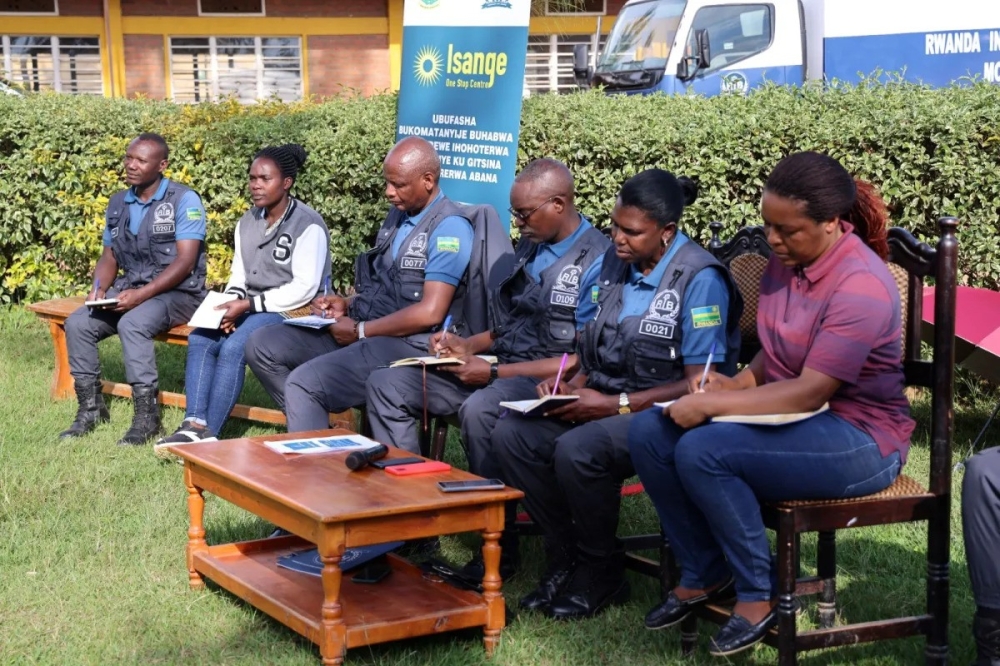

Rwanda has made progress in combating Gender-Based Violence (GBV) through legal reforms, community interventions, and civil society involvement.
Despite these efforts, GBV remains a pervasive issue.
According to the 2019/20 Rwanda Demographic and Health Survey, 37% of women and girls aged 15-49 have experienced physical, sexual, or psychological violence, compared to 30% of men.
This highlights the continued challenges in enforcement, reporting, and changing cultural attitudes toward GBV.
ALSO READ: GBV: 24% decline in court cases linked to awareness campaign
Olivia Promise Kabatesi, the Founder and Country Director of Empower Rwanda, an NGO dedicated to empowering youth and women, noted the key measures Rwanda has taken to tackle GBV.
"The government’s commitment to creating a clear legal framework has been a crucial step forward, with laws such as the Family Law, GBV Law, the National Gender Policy, and Child Protection Law. Rwanda has established legal safeguards for both women and men, aiming to prevent violence and punish perpetrators,” Kabatesi said.
ALSO READ: Experts call for broader sexual reproductive health education to prevent GBV
She explained the need for dispersed structures at the community level, such as child protection committees, women’s committees, and youth committees to protect individuals and prevent violence within local communities.
"These platforms are essential, and the involvement of local authorities, law enforcement, and health facilities has played a major role in preventing and responding to GBV, for example, health workers in communities play a pivotal role in educating and supporting victims of sexual violence.”
Kabatesi stressed that economic empowerment programs are also crucial as they reduce economic vulnerabilities.
ALSO READ: Officials root for positive parenting to tackle GBV in families
She explained, "Poverty is often a root cause of violence, and by empowering women and girls economically, we reduce their dependence on abusive relationships. These programs, in collaboration with the National Women’s Council and its committees, are key preventive measures.”
Despite the clear legal and structural measures in place, Kabatesi pointed to a gap in the implementation of these efforts, stressing that policies often fail to be victim-centered.
For instance, while much has been done to prevent GBV, there is still a culture of silence that prevents victims from speaking out. This silence perpetuates the cycle of abuse, she noted.
She also emphasized the need to engage men in these efforts, stressing: "Many of the perpetrators are men, yet we focus too much on women as victims. We must involve men in awareness campaigns, helping them understand the consequences of their actions and empowering them to act as allies in the fight against GBV.”
Fidele Rutayisire, the Founder and Executive Director of the Rwanda Men’s Resource Center (RWAMREC), an NGO dedicated to promoting gender equality and positive masculinities, stressed the need for greater male engagement in eliminating GBV.
Rutayisire mentioned various measures Rwanda has put in place, including the criminalization of GBV in 2008 and the introduction of the National Anti-GBV Policy in 2011.
According to Rutayisire, Rwanda’s GBV prevention efforts have been multi-faceted, with initiatives targeting both awareness and victim support.
"Community-based platforms such as Umugoroba w’Imiryango (Families Evening Forum) and Inteko z’abaturage (Community Assemblies) have been instrumental in educating citizens about GBV,” Rutayisire said.
He added that the media, schools, and community campaigns have been crucial in spreading the message of prevention and encouraging reporting.
Rutayisire also emphasized the role of the Isange One Stop Centres (IOSC), which provide comprehensive services for GBV victims, including medical, psychological, legal, and investigative support.
"These centers, which operate across 44 district hospitals, are a lifeline for victims, offering them a safe space and immediate support,” he said.
However, Rutayisire acknowledged that challenges persist. He pointed to cultural norms and the stigma surrounding GBV as major barriers.
"Despite our efforts, patriarchal attitudes and traditional gender roles continue to normalize violence, making it harder for victims to come forward,” he explained.
He also noted the need for more male engagement in anti-GBV campaigns, asserting that "men need to understand their role in both preventing and responding to GBV.”
Rutayisire said that there is an issue of underreporting, with many victims still afraid to seek justice due to fear of retaliation or mistrust in the justice system.
"We need to build greater trust in law enforcement and judicial processes to ensure swift and fair justice for GBV survivors,” he said.


